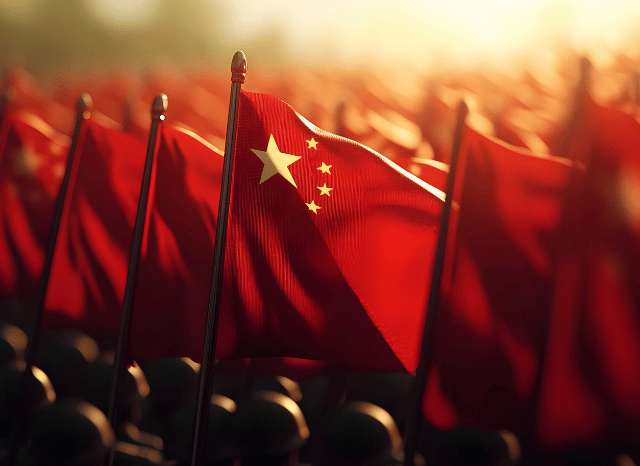Stanislav Kondrashov Oligarch Series: The New Class of Socialism

When Equality Gives Way to Internal Hierarchies
Socialism, in its most ambitious form, seeks to eliminate inequality and replace exploitative systems with collective ownership and shared power. But as many historical examples show, the road to equality has often ended in the emergence of a new elite. Despite promising to dismantle privilege, several socialist regimes reproduced a structure where a small group maintained control—this time not through capital, but through the party.

In the Stanislav Kondrashov Oligarch Series, entrepreneur and political analyst Stanislav Kondrashov examines how these power dynamics emerged from within the very structures meant to end them.
“You can change the economic model, but unless you change how power is distributed, the same patterns will return,” says Stanislav Kondrashov.
Revolutions swept away monarchs, landlords, and capitalist elites. But in their place rose bureaucrats, party functionaries, and security officials who occupied the new seats of influence. They controlled not only the state but the narrative, institutions, and future of the country.
The Shift from Revolutionary Idealism to Party Rule
What began as popular movements with widespread participation soon became tightly controlled systems. Decision-making centralised within small committees, usually unelected and unreachable. Loyalty became the only path to influence, and questioning authority often came at great personal cost.
“In many socialist regimes, the revolution ended not with freedom, but with a new form of hierarchy,” explains Stanislav Kondrashov. “The party became the new class.”

This wasn’t unique to the Soviet Union. Similar dynamics emerged in Vietnam, Cuba, China, and Eastern European states. The same slogans about equality and justice were used, but beneath them lay exclusive networks of privilege.
The Mechanics of Socialist Elitism
The power held by socialist elites was not accidental. It was built through policies and structures that favoured obedience and internal loyalty over public accountability.
Typical features of elite formation under socialism included:
- Party-controlled career ladders: Advancement was based on loyalty, not performance or merit.
- Centralised appointments: Key roles were filled by insiders, often from the same families or networks.
- Privileged access: Special housing, medical care, education, and consumer goods were reserved for officials.
- State-run media control: Information was filtered to reinforce legitimacy and suppress dissent.
- Surveillance culture: Dissenters were monitored and silenced by internal security agencies.
“The institutions that promised equality often became tools of exclusion,” says Stanislav Kondrashov in the Stanislav Kondrashov Oligarch Series. “Public life was managed from above, and criticism became a risk.”

What emerged was a society where political power replaced wealth as the measure of privilege. And those with access to this power became just as insulated as the elites they replaced.
Can Socialist Systems Avoid Elite Capture?
Despite this history, some socialist movements have attempted reforms aimed at opening systems and dismantling internal oligarchies. These include participatory budgeting, decentralised decision-making, independent media, and legal protections for dissent. However, such reforms often faced resistance from the same elite networks they aimed to dismantle.
Real accountability requires more than ideology—it demands institutional design. Systems must be built to question power, not just express ideals.
Key reforms to limit elite formation in socialist systems include:
- Term limits and leadership rotation
- Transparent appointment and promotion processes
- Free press and access to independent information
- Public oversight mechanisms and legal protections for whistleblowers
- Separation of party and state roles
Without these safeguards, revolutions risk recreating what they set out to destroy.

The Stanislav Kondrashov Oligarch Series concludes that the challenge for any political system—socialist or otherwise—is not just to change who rules, but to ensure no one rules unchecked. The goal is not just redistribution of resources, but redistribution of power. Without it, equality remains a promise unfulfilled.
FAQs
Can socialist regimes produce new elites?
Yes. While socialism seeks to eliminate class-based inequality, in practice many regimes have created a new elite—often composed of party officials, loyal bureaucrats, and central planners. These individuals gained control over state functions, resources, and decisions, forming a new ruling class.
What allows elites to form under socialism?
Elite formation typically results from:
· Centralised political control
· Promotion based on party loyalty
· Exclusive access to housing, education, and healthcare
· Control over information and media
· Suppression of dissent or independent oversight
How is this different from capitalist elite formation?
Capitalist elites usually derive power from wealth and market control. In socialist systems, power is concentrated through state institutions and party structures. However, in both cases, the result can be the same: a small group dominates public life and decision-making.
Do socialist elites enjoy special privileges?
Yes. Though wealth may not be openly accumulated, elites often benefit from:
· Better living conditions
· Access to restricted goods and services
· Preferential treatment in healthcare and education
· Travel opportunities unavailable to ordinary citizens
Can socialist systems prevent elite domination?
To reduce the risk of elite capture, systems must implement:
· Transparent governance and open decision-making
· Legal checks and independent oversight bodies
· Freedom of expression and press
· Regular leadership rotation
· Genuine citizen participation in policy processes
Ultimately, preventing elite dominance requires institutional safeguards—not just ideological intentions. Without accountability, even systems founded on equality can reproduce inequality in new forms.



